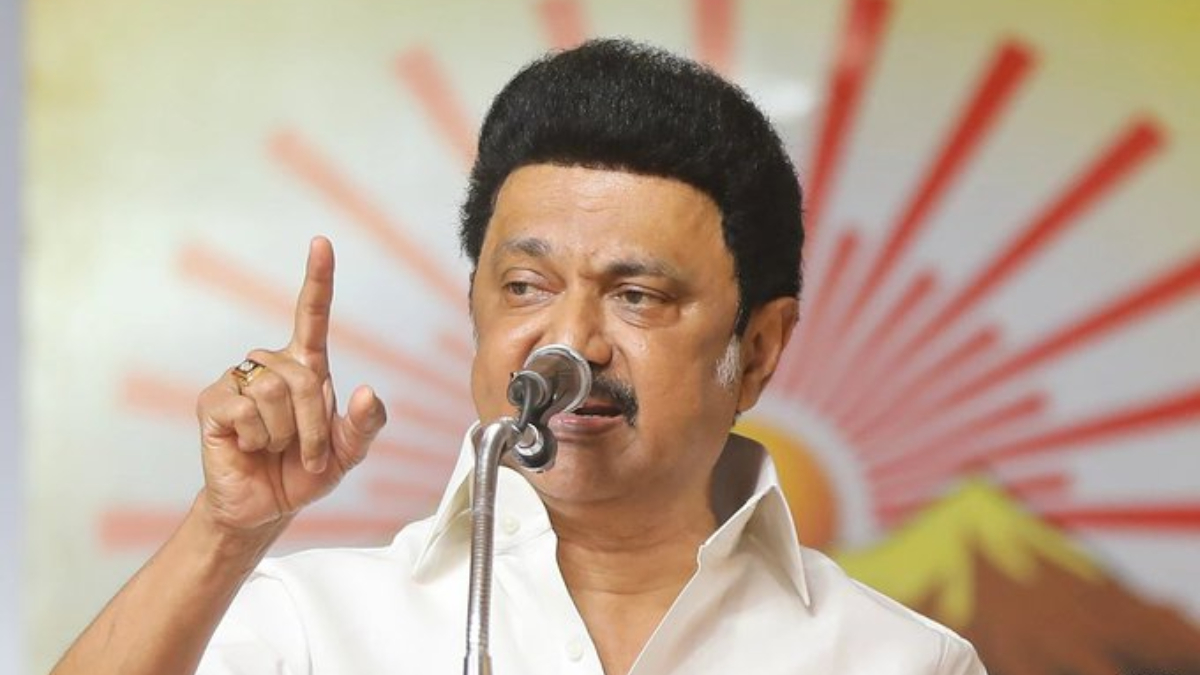Chennai: Several provisions in the draft UGC regulations were ‘in conflict with the state’s educational system and policies,’ Tamil Nadu Chief Minister M K Stalin claimed on Monday and urged Union Education Minister Dharmendra Pradhan to withdraw the said regulations.
The state believed that many provisions in the draft regulations might pose serious challenges to the academic integrity, autonomy, and inclusive development of state universities, he said.
“We therefore request that the Ministry of Education may withdraw the draft Bills under discussion and review the concerns to better align with the needs of the diverse higher education landscape in India,” Stalin said in a letter addressed to Pradhan.
MK Stalin Writes Letters To Chief Ministers Of Non-BJP Ruled States
Also, in separate letters addressed to the chief ministers of the non-BJP ruled states, Stalin asked his counterparts to consider passing a resolution in their respective Assemblies on lines similar to the Tamil Nadu Assembly resolution seeking the withdrawal of the draft UGC regulations 2025.
“The recently issued UGC guidelines restrict the role of state governments in the appointment of Vice-Chancellors and certain administrative admission procedures, including the introduction of entrance exams for UG and PG courses in Universities,” he said.
These guidelines were “a clear infringement” on the rights of state governments and will have far-reaching consequences on the autonomy of state universities, he said in the letter addressed to the chief ministers of New Delhi, Himachal Pradesh, Jammu and Kashmir, Jharkhand, Karnataka, Kerala, Punjab, Telangana and West Bengal.
“It is crucial that we stand united against these attempts to centralise power and undermine the federal structure of our country. I would appreciate if you could consider this request and take the necessary steps to pass a resolution in your Assemblies,” Stalin said.
Tamil Nadu CM Seeks Union Education Minister Dharmendra Pradhan’s Support
He sought Pradhan’s support in ensuring that these guidelines were withdrawn and modified to better suit the needs of the states, particularly Tamil Nadu. Considering the importance of the issue, the Tamil Nadu Legislative Assembly passed a resolution on January 9, 2025, unanimously opposing the draft regulations and urging the Union government to withdraw them, he said enclosing a copy of the resolution.
Introducing entrance exams for admission to UG and PG courses was unnecessary and burdensome and they would exacerbate academic anxiety and financial stress, disproportionately harming socio-economically disadvantaged groups, the chief minister claimed.
Further, a single entrance exam for the entire country was impractical given the varying educational levels and systems in the country and it also undermined federalism by state autonomy.
“The system proposed allowing students to pursue any degree irrespective of their secondary stream can create unnecessary academic stress without sufficient foundational knowledge. Therefore, for the aforesaid reasons, we strongly feel that UG, PG admissions should be based on undergraduate assessments rather than a separate entrance exam,” he said in the letter addressed to the Union Education Minister.
Similarly, allowing students with a 4-year undergraduate (in Arts/Science) degree to pursue M.Tech., or M.E., programmes was ‘disquieting.’ Without a solid foundation in basic engineering principles, students may struggle in postgraduate courses, and the relevance of such programmes required careful re-examination.
The Multiple Entry and Multiple Exit (MEME) System could de-stabilise institutions by complicating academic planning and resource allocation.
Tamil Nadu CM Expresses Concern Over Criteria For The Appointment Of Vice-Chancellors
He expressed concern over the proposed criteria for the appointment of Vice-Chancellors, as it might lead to the appointment of individuals who lacked necessary academic and administrative experience to lead universities effectively. “We suggest that the criteria be reconsidered to prioritise individuals with a proven track record in academia and university governance,” Stalin suggested.
He emphasised that the state government’s participation in selecting VCs for the universities raised and funded by it, was critical to ensuring that the genuine aspirations of the state, local educational needs, policies, and affirmative action measures were appropriately considered.
Allowing individuals to teach subjects without proper foundational knowledge will negatively impact the learning outcomes for students, particularly at the undergraduate and postgraduate levels, Stalin said.
(Except for the headline, this article has not been edited by FPJ’s editorial team and is auto-generated from an agency feed.)
